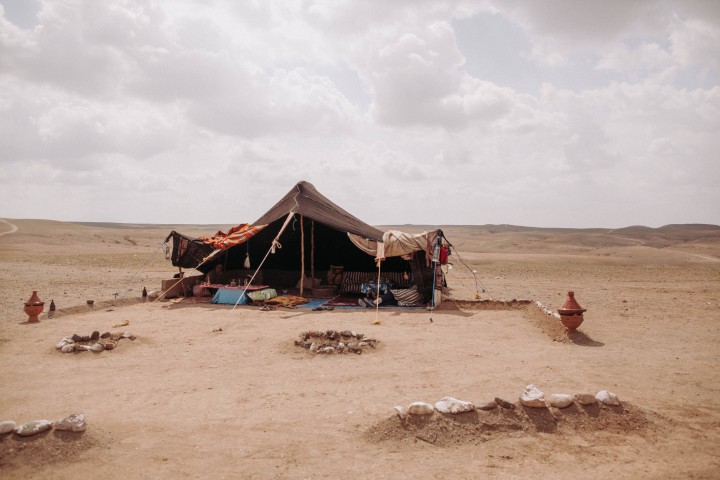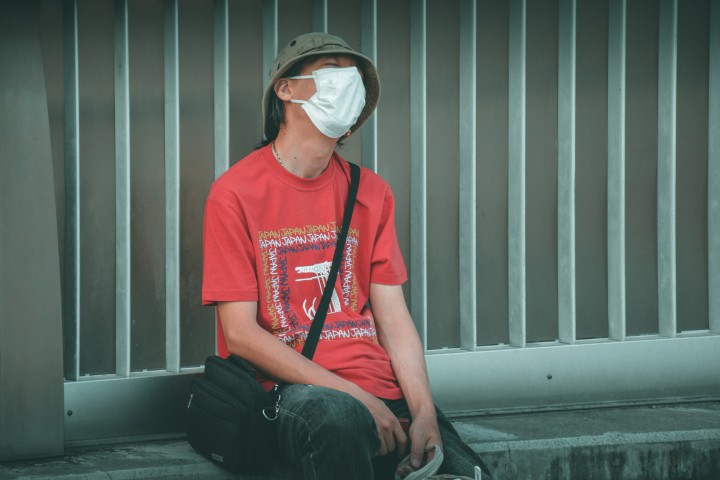
The biblical paradigm of inside/outside 'the camp' provides a new way for thinking about community and God in 2020
Levi Morrow
s
In this short essay, I want to explore some possibilities of how the biblical language of ‘the camp’ might help us think about Jewish life in the shadow of Corona.
First, what is the function of religious languages? Why should the novel coronavirus send me looking at the possibilities of biblical language?
Like other languages, religious language provides us with words and concepts for thinking about and communicating our world and the events we experience (among other functions). This language is something we as individuals pick up from the specific culture or society in which we live. Unlike other languages, religious languages make specific reference to God and to theological concepts, putting our world and our experiences into a theological context. Thus religious and non-religious languages may describe the same phenomena in very different ways, to radical effect. For example, Rav Shagar notes that when it comes to the individual suddenly, directly encountering unprocessed reality, ‘Lacan, as a psychologist, identified this with trauma; Rebbe Nahman, with his religious perspective, identified this with the appearance of the divine…’1 Depending on which language we use to think about and communicate our reality, it can be catastrophe, or it can be revelation.
What happens when we come across new experiences for which our language (religious or otherwise) feels insufficient? Much as modern English looks back to the King James Bible and to Shakespeare, and German looks back to Goethe, religious languages can draw on their extensive traditions to find new, unexplored options for thinking about events in context of God. When we, as Jews, encounter theological novelties, we can reach back through the Jewish tradition, to medieval theology, to Hazal, or even to Tanakh, looking for new-old words for our present reality.2
Corona and ‘the Camp’
The sudden, rapid spread of both the novel coronavirus and the radical countermeasures we have taken against it are unlike anything many Jews have ever experienced. Confronted by the frightening possibilities of infection and quarantine, I felt that this represented a gap in the typical theological language of the Jewish community. What does 21st century Orthodox Judaism have to say about quarantine?
In my search for a religious language for quarantine, I found myself drawn back to biblical language–specifically, to Vayikra’s distinction between inside and outside the camp, meaning the collective space occupied by the Jewish people. Individuals who experience various states of tuma, impurity, have strict rules for which parts of the camp they must avoid. In some cases, they are excluded from the camp entirely. For a short time, they are quarantined outside the camp, interacting only with their priestly diagnostician.
The locus of Jewish life has always been the body politic (whether the community or the nation) more than it has been the body human–in this case, the body quarantined. This is obviously not a perfectly sharp distinction, but Jewish holiness has always inhered in the structure of spaces and the people who can and cannot frequent them.
כי ה’ אלוהיך מתהלך בקרב מחנך… והיה מחניך קדוש
Since the Lord your God moves about in your camp… let your camp be holy…3
The inclusion of God within the camp of course comes with strong and often painful exclusion of certain people from the camp, temporary quarantines of the pathological outside the holy community. The Jewish community and its spaces possess both an inside and an outside. I thus, for a time, found theological satiety in the idea that Judaism has language for individuals who, while still participating in Torah and its laws, are also temporarily excluded from the holy community.
But what do we do when the camp has come apart, when inside/outside has become only outside? What do we do when there are no more holy spaces? What happens when Jewish communities can no longer gather together?
On a practical level, the answer might be to find alternative models of ‘space.’ Many shuls and yeshivas have very successfully shifted from in-person to online gatherings. While this cannot perfectly replicate the spaces that have been lost, it can do much to fill this sudden lack.
On a theological level, I find myself returning, again and again, to a verse from Shemot, describing an oft-overlooked result of the sin of the Golden Calf:
ומשה יקח את האהל ונטה לו מחוץ למחנה הרחב מן המחנה, וקרא לו אהל מועד. והיה כל מבקש ה’ יצא אל אהל מועד אשר מחוץ למחנה.
Now Moses would take the Tent and pitch it outside the camp, at some distance from the camp. It was called the Tent of Meeting, and whoever sought the Lord would go out to the Tent of Meeting that was outside the camp.4
After the people sinned, Moshe moved the tent where people could meet God from inside the camp to outside the camp. When the holy camp was replaced with the idolatrous camp, God moved outside. Meeting God would no longer happen specifically within space shared by other Jews, and from which certain Jews were temporarily excluded. Instead, meeting God was the purview of lone individuals–’whoever sought the Lord.’
Obviously, there’s a difference between the conscious, intentional closing down of Jewish communal spaces and the mass sin of the Jewish people. What they have in common, however, is the sudden erasure of the holy camp, of the social space that typically underlies Jewish religious life. In light of this verse, perhaps we may suggest that the communal aspect of Jewish life is not as central. Perhaps, even if only temporarily, the locus of Jewish life, of holiness, can be the individual outside the camp who meets God in quarantine.





